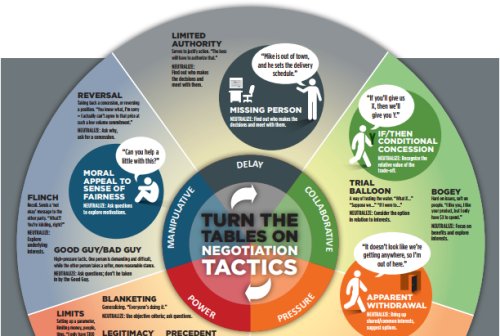Generally speaking, open-ended questions yield much more useful information than closed-ended questions. Open-ended questions often begin with who, what, where, when, how, or why. These questions tend to be more informative because they do not lead your counterpart in any specific direction. They are also more productive in revealing your counterpart’s objectives, needs, wants, and current situation. Finally, open-ended questions are very effective when you want to uncover your counterpart’s behavioral style. Simple “yes” or “no” answers may not reveal his thoughts or points of view. Expansive questions tend to provide a window into your counterpart’s mind.
Here are some typical open-ended questions:
- “How do you feel about moving out of your home before Christmas?”
- “You seem to be unhappy with my offer. Which aspects seem to be the biggest problems?”
- “Why do you feel this model justifies the higher price?”
- “What type of warranty comes with this product?”
- “When people have returned this product, what sorts of complaints or problems have they reported?”
Free Downloads

Neutralizing Negotiation Tactics
Public Negotiation Training